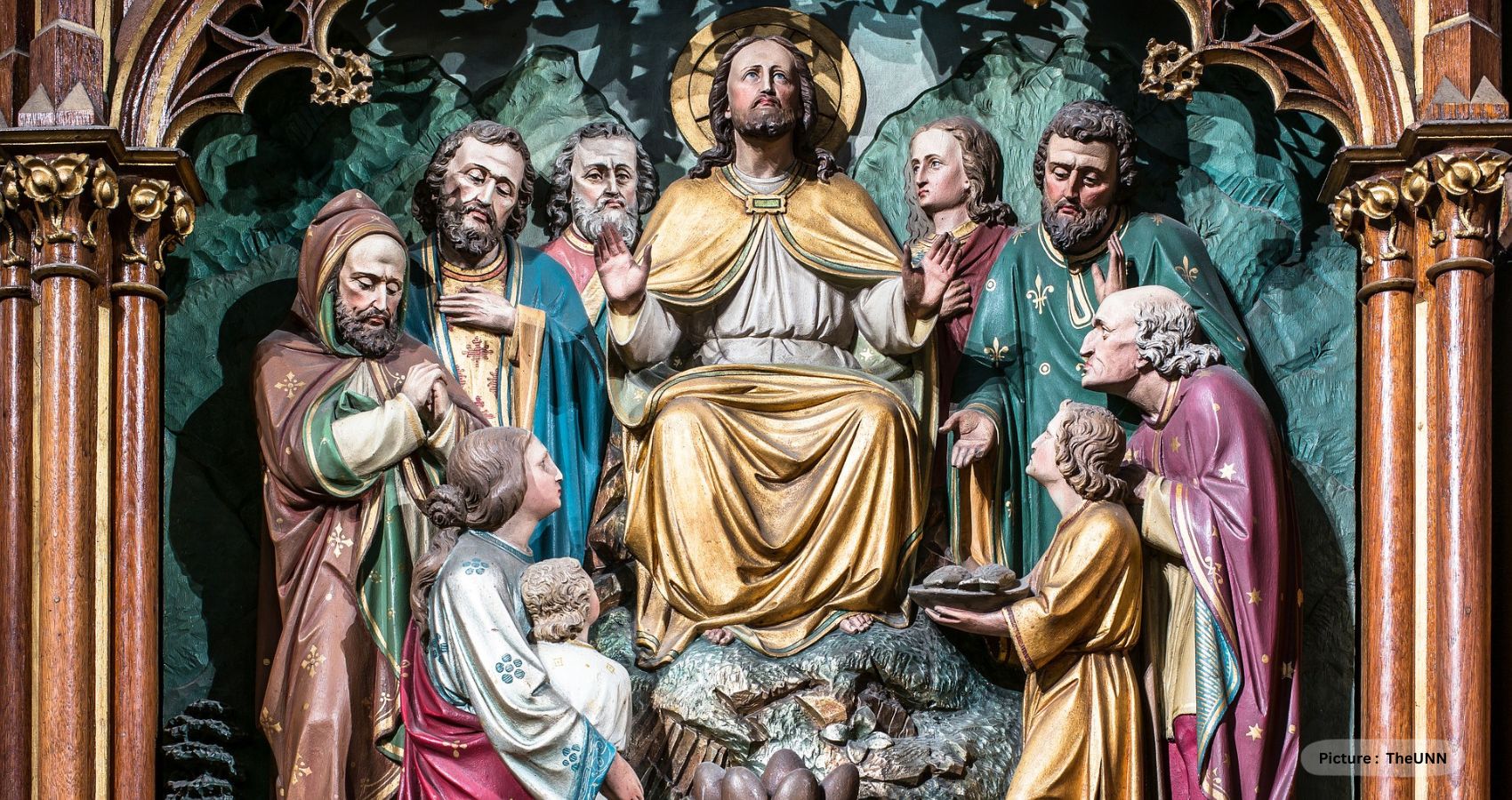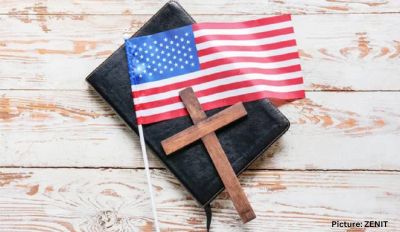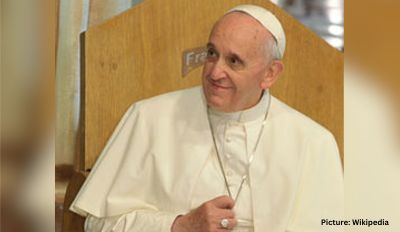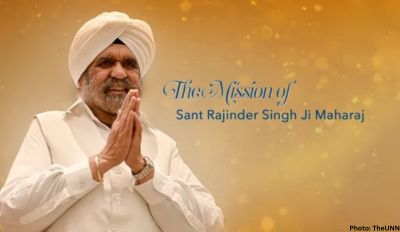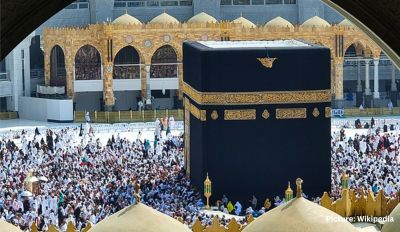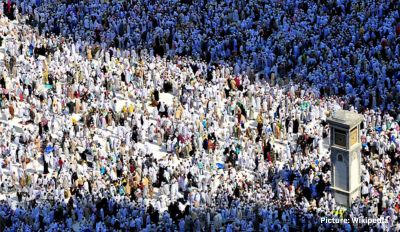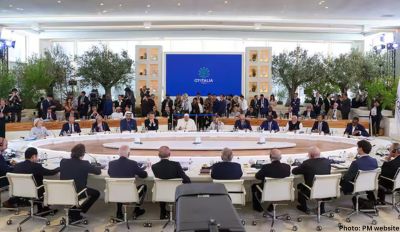Introduction By Rev. Pankiras Aruplappan:
As a little boy preparing for the first Communion, I was taught that the Holy Orders give one the freedom to celebrate the Eucharist and administer the sacraments. As I grew in age, I was told that it was at the Lord’s Supper Jesus instituted the Eucharist and priesthood. And both these intrigued me all along and was on search as to the real meaning of these two, especially the Eucharist, said to be the ‘core mystery of Christian faith’.
Yesterday, on my friendly visit to Fr. Jose Kaleekkal, at his residence at Ades Veedu, Anthamon, near Kottarakkara, while sharing our common concerns, the topic of Eucharist came in and in that context he presented me with a lovely book addressing my above search, the ‘Seven Baskets Full – The All-Embracing Lord’s Supper’ by Subhash Anand, on Eucharist.
I could not wait to read it. So, started from the cover page with the opinions on the book… Not skipping any page came to the Preface which enthused me like anything, I am sharing that with you all verbatim as I felt rather compelled to, of course typing it from the book… (Reverend Father Panky Arulappan.)
The Preface By Subhash Anand
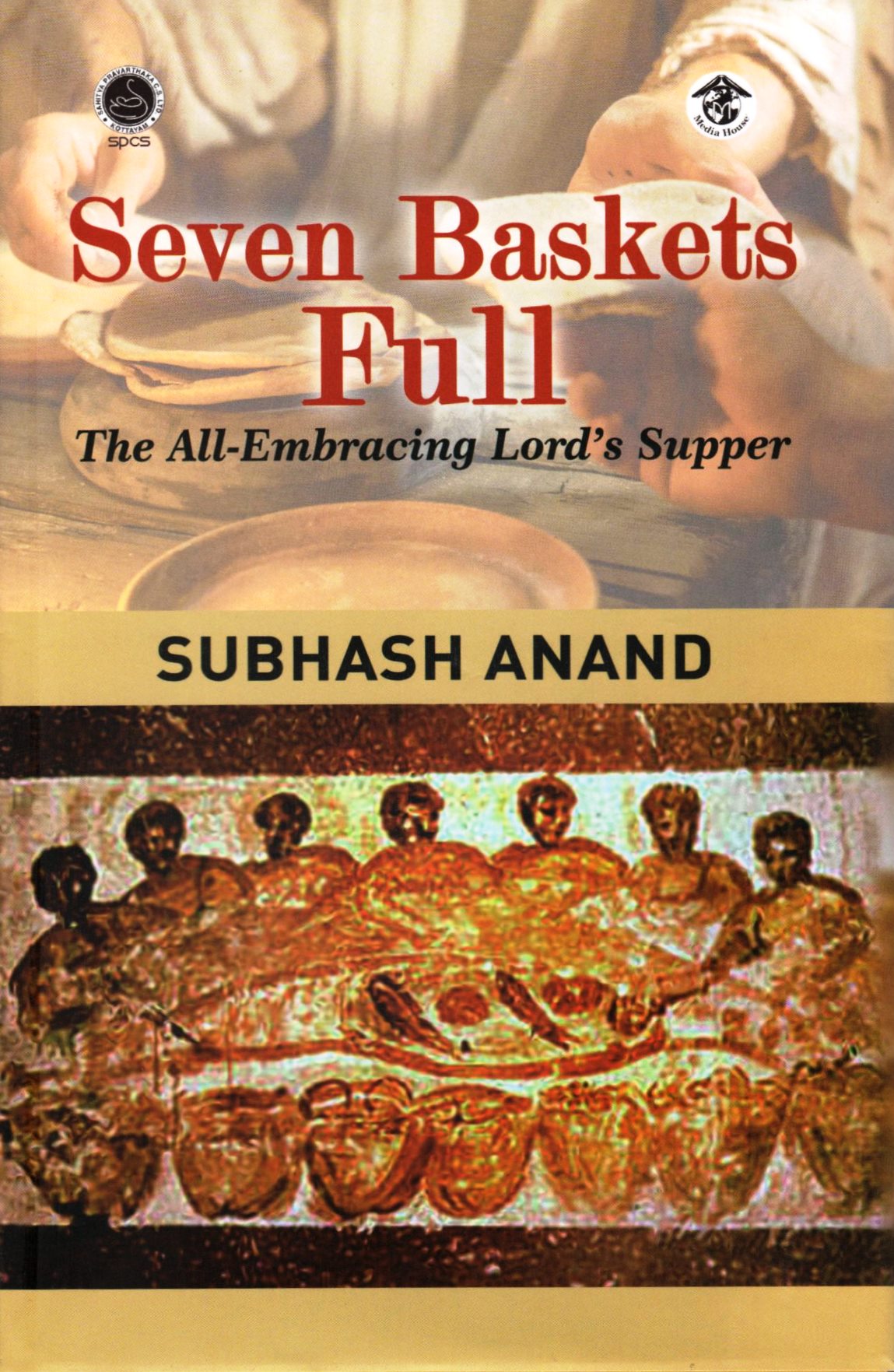 ‘It was September 1967. Some of us were making our ordination retreat. Our most respected professor of systematic theology, Fr. Josef Neuner, SJ, was with us as our guide. We were fortunate to have him: a man deeply in love with Jesus and his Church. During a conversation with him, I asked him: “Could the historical Jesus institute the Eucharist as we understand it today?” He smiled and remained silent. His silence spoke to me. Since then that question kept on popping up in my mind. The years that followed kept me busy with some other studies, followed by years of teaching and accompaniment. My work at Jnana Deep Vidyapeeth, Pune, required that I focus my attention on Indian Philosophy and Religions. After I retired from Jnana Deep Vidyapeeth, and returned to Udaipur in 2009, I got immersed in the work of a Hindi commentary on the Bible. That kept me occupied for the next nine years.
‘It was September 1967. Some of us were making our ordination retreat. Our most respected professor of systematic theology, Fr. Josef Neuner, SJ, was with us as our guide. We were fortunate to have him: a man deeply in love with Jesus and his Church. During a conversation with him, I asked him: “Could the historical Jesus institute the Eucharist as we understand it today?” He smiled and remained silent. His silence spoke to me. Since then that question kept on popping up in my mind. The years that followed kept me busy with some other studies, followed by years of teaching and accompaniment. My work at Jnana Deep Vidyapeeth, Pune, required that I focus my attention on Indian Philosophy and Religions. After I retired from Jnana Deep Vidyapeeth, and returned to Udaipur in 2009, I got immersed in the work of a Hindi commentary on the Bible. That kept me occupied for the next nine years.
Sometimes I managed to find some time to get back to my question. Once the work on the commentary was over, I could return to that question with greater leisure.
It(n) the meanwhile I read Jose Antonio Pagola’s bestseller Jesus: An Historical Approximation (Bangalore, Theological Publications in India, 2013). The book made me see better the importance of the question that kept on haunting me all these years. Pagola tells us” “I am convinced that Jesus is the best we have in the Church and the best we can offer to modern society. Even more: I believe, as many other thinkers do, that Jesus is the best that humanity has ever produced” (p.15). At first, I was wondering why Pagola needs to tell his Christian readers that Jesus is the best we have in the Church. I thought every Christian shared Pagola’s conviction. As I continued reading, I began to see the deep anguish the writer experiences at the fact that many Christians, “good women and men, live on the ‘epidermis of faith’, nourished by a conventional Christianity. They find religious security in the beliefs and practices that are within their reach, but do not live in joyful relationship with Jesus Christ” (p.27). In their lives, Jesus has been displaced by Mary and all their patron saints, and by all the dogmas, rituals and rules of the Church. The Church’s claim that devotion to Mary and the saints, that all her dogmas and laws, that all her rituals and rubrics, are meant to lead people to Jesus is just not borne out by empirical data. Coming to Jesus is not a passing sentimental experience; it is an abiding soul-stirring challenge. We cannot really come to Jesus without (effectively and) effectively reaching out to our sisters and brothers, particularly those who are in need and who are neglected by the society at large (Mt 25.31-46).
There are different reasons why we are satisfied with so little. First, unlike the first disciples, the vast majority of Christians today were baptized when they had not yet reached the age of reason. We did not make a mature choice to become Christians. It is time that we seriously reflect on the practice of infant-baptism. One African theologian has lamented that in Africa, there are many baptized people, but very few Christians. Second, most of the churches have fallen into the trap of organized religion, which domesticates the prophetical vision of the founder, and offers an easy way of being ‘religious’. Pagola laments: “I know how tempting it is to live correctly within the Church, without worrying about the one thing Jesus taught: the kingdom of God and its justice (p.27). The leaders of organized religions know quite well that were they to make really difficult demands, they might lose a good part of their clientele and their livelihood.
The domestication of the prophetical vision of Jesus has also left its devastating impact on the Lord’s Supper: it was reinterpreted to serve the agenda of the priestly community; it satisfies our emotional needs but does not challenge us. For instance, in the Roman Catholic Church, the vast majority of bishops and priests celebrate the Eucharist almost daily; yet empirical studies indicate that our life-style is not a challenge to the laity. Sad to say, very often many of us are even lacking in the basic qualities that are expected of a decent human being. So often, Pope Francis has lamented the pervasive presence of clericalism within the Church. Clericalism reveals itself in arrogance, abuse of authority, abuse of the church funds, abuse of helpless people, refusal to consult people, refuse to be accountable, giving more importance to our comforts and conveniences, etc. In short, we can misbehave with impunity.
So too, members of non-clerical religious congregations participate in the Eucharist more or less every day; but many lay people wonder: “Do we still need religious in the Church?” The reason for this question is simple: most religious do not fulfil their primary responsibility: to be a countercultural presence in the world at large. I am not saying that we priests, bishops and religious are all bad people. Most of us are not adequately Christian. We have succumbed to the seductive charm of the consumer culture; we feel carried away by the spirit of competition that characterizes the modern professional world. We believe that assertive action rather than transformative presence is what the society most appreciates today. As a result, even the most powerful symbol of Jesus – the shared meal – has been hijacked by the brokers of organized religion. It has been reduced to a convenient ritual that only serves to reinforce mediocrity.
Jesus was a contemplative. We see him often at prayer all alone in some lonely place. He experienced God as a very loving parent, who is always and everywhere accessible to all his children. Jesus wanted to share this experience with others. Hence, he shared meals with all kinds of people. This was an invitation to the unbrokered experience of the Kingdom of God that shatters all boundaries we lay down and negates all the hierarchies we set up. The Father wants us to approach him directly. The moment we sincerely wish to do so, he runs to meet us and gathers us into his loving embrace. He does not wait for us to go through some atonement ritual. He does not wait for us to be escorted into his holy presence by some professional brokers. To reveal to us his love and compassion he sent his son as our brother. Somehow we find it difficult to believe that God could be so humane and humble so as to bypass all formalities. We prefer to think him as a king who is surrounded with many courtiers and these have been instructed to enforce proper protocol. We are comfortable with brokers not only on earth, but we also seek brokers in heaven. The brokers on earth are busy multiplying brokers in heaven. That brings them additional importance and brokerage.
This was the religion of the Old Testament. It was a thoroughly organized religion, with a highly institutionalized liturgy, controlled by a three-tiered clergy: Levite, priest and high priest. This hierarchy was taken care of by the offerings the people brought to the temple of Jerusalem. Hence, the clergy had to multiply occasions for people to visit the temple. They multiplied rituals for different occasions. It was a veritable religious consumer market. All the adult males had to visit the temple in Jerusalem at least three times a year. The Jews were told that they could not come before the Lord empty-handed (Ex 23:15, 34:20; Deut 16:16). This organized religion, with its institutionalized liturgy, found its expression in a host of cult-related laws. Even the priests could approach the sanctuary only when they were dressed in protective vestments. They generated sacred texts that legitimized their claims, perpetuated their position and ensured their prestige.
The demands of a highly organized religion was the burden (zugos) some early disciples of Jesus wanted to impose on the Gentile followers (Acts 15:28). This was the burden that Jesus had in mind when he invited people to come to him: “Come to me, all who labour and are heavy laden, and I will give you rest. Take my yoke upon you, and learn from me, for I am gentle and lowly in heart, and you will find rest for your souls. For my yoke is easy, and my burden (zugos) is light” (Mt 11:28-30). When the Son of Man comes to judge us, the norm will not be the requirements of any organized religion, but the simple demands our humanity makes of all of us (Mt 25:31-46).
To understand the call to be disciples of Jesus, we need to take very seriously the mystery of Incarnation. The way Roman Catholic theologians make claims about Jesus, makes me feel that they are actually operating within a Docetic frame: the pre-Easter Jesus knew everything: he even knew that he was God! Most of our Eucharistic Theology reveals a Docetic presupposition. The Eucharist of Jesus is an invitation to share a real meal with others, especially with the needy. It is an invitation to break ourselves for others. This is the deeper meaning of Incarnation: God emptying himself for us. He does this not to save us from sin, but to reveal to us his unbounded love. God becomes man to teach us that just by being decent women and men we can come to him. God comes to us, so that we may go out to the others, crossing all boundaries and ignoring all hierarchies. The shared meal of Jesus was meant to symbolize this call to be human and humane.
While working on this book I had some very happy experiences. My deepest convictions were confirmed. A careful reading of the New Testament and the early Church Fathers was a very refreshing and reassuring experience. The foundational texts and the earliest Christian writers speak a lot about worship, but very little about cult – if at all. For them the discipleship of Jesus is the best worship we can render to his Father. They give great importance to love of neighbour and prayer, but speak very little about the Eucharist. One reason could be that already within the life-time of Paul, the Eucharist had been distorted (1 Cor 11:16-34). It became a ritual that did not demand an adequate ethical commitment. John had foreseen this possibility; he does not give us the institution of the Eucharist in his Gospel. During the Last Supper, Jesus washed the feet of his disciples, and explained his action as an invitation to love one another through humble service, telling them to do this in remembrance of him.
The discipleship of Jesus, the poor prophet from Nazareth, is anything but easy. It calls us to carry our cross and walk with him. This is the best sacrifice we can and ought to offer God. Jesus wants us to remember him by breaking ourselves for others. An actual meal, shared with others, particularly with the needy, expresses our willingness to become the bread broken for others, the cup poured out for others. As his disciples, we are called to give away our most precious belonging to empower others. God calls us as he called Abraham: to sacrifice our only son. God gives the lead. By doing this we will live the mystery of Incarnation: God breaking and pouring out himself for us. This will demand that we go much beyond the rituals and devotions we are so habituated to, that we set out on a journey of contemplation, not knowing where we are going (Heb 11:8), but confident that the Risen Lord is journeying with us.
Cult tends to keep us infantile all our life. True, as humans we need some signs and symbols; but these cannot be mandatory always and everywhere. Very few symbols have an evocative value for all humans; these emerge from our shared humanity and from the awareness of what his humanity really means. True, sometimes we need to come together to pray. But shared silence too can be deep community prayer. Through contemplative prayer we will attain human maturity, and the full stature of Jesus Christ (Eph 4:13). Then we will understand that we are all guests of God. We are trustees not owners. Even the wealth we have acquired through hard and honest labour is not ours. It is meant to be shared with others. Contemplative prayer will shape our vision and our life. We will not be carried away by the pomp and glamour of our consumer markets. We will not allow our need for comfort, convenience and pleasure to dominate us. Our life will be simple: we will use for ourselves as much resources as we really need so that the other sisters and brothers of Jesus will also have what they really need. Our life itself will become our Eucharist. Then, and only then, will we discover the real meaning of the Lord’s Supper. Then, and only then, will our celebration of the Eucharist have some meaning.

